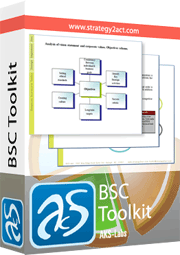Business Strategy Based on Knowledge Instead of Belief
Is your business strategy based knowledge instead of belief? If you are like most entrepreneurs, you are not collecting enough external data when making your business decisions, and it will cost you millions over your lifetime. It may even cost you your business. “Why?” you might ask. The answer is that too often we make decisions based on “belief” instead of “knowledge.” This is a very important distinction.
Knowledge vs. Belief
Knowledge is indisputable “fact”. Belief is your opinion about what result any given course of action will produce, and much of what you believe about your business many times is wrong. Are you acting on facts that are no longer valid, or on beliefs that you have held for a long period of time despite contrary evidence all around? In my experience, you probably are. Worse, when people present you with facts, you may be doing everything you can to hold onto your erroneous beliefs by finding any random inconclusive data to support them.
You Need to Communicate With External People
I spend more than 100 days per year conducting planning sessions. I watch leaders make decisions without collecting data from customers, prospects, or past customers. Even when they have collected data, they are not looking at and analyzing that data. Many times they are looking only for data that supports their existing opinions. Often the data they collect does not help them with their decisions because there isn’t enough, or what they have is anecdotal or too generic.
Are you collecting information on a weekly basis about people that have chosen not to do business with you, people that are customers, and people that you want to have as customers to really analyze why you lost customers? You will notice I chose “people” and not businesses, clients, customers, or any other word. You do business with people. They have needs, wants, problems, concerns, opinions, challenges, biases, etc. The world is constantly changing, so these factors are always shifting, thus causing the need to continually collect the information to keep your offering competitive and relevant. Failure to do so results in business strategy based on “belief” instead of “knowledge.”
Start With Customers
The obvious place to start is with your customers. You are probably thinking, “I know my customers” because you do business with them every day. It is a common mistake to confuse a system for collecting information with daily exchanges. Without a systematic process you will fail! In your daily exchanges, you are concerned with delivering your product or service, and the customer is focused on receiving it. At best, you get anecdotal information and only focus on problems and challenges. During daily exchanges, your front-line staff is not thinking about the company’s business strategy or worrying about what data you need for making future business decisions. In many cases, a staff member who receives what could be useful information may filter it or not report it at all.
Collecting Unfiltered Information From Your Customers
Collecting unfiltered information from your customers should be a priority for every company. This is usually easier than you think, and the only reason it has not happened is that you have not made it a key priority. Benefits you can expect:
1. Identify reasons to charge existing customers more for existing products and services.
2. Identify new products and services to offer.
3. Increase retention of customers that you did not know were at risk.
4. Turn existing customers into a referral engine.
5. Strategize based on knowledge instead of belief.
1. Identify reasons to charge existing customers more for existing products and services.
2. Identify new products and services to offer.
3. Increase retention of customers that you did not know were at risk.
4. Turn existing customers into a referral engine.
5. Strategize based on knowledge instead of belief.
A Simple Starting Point
A great historical example of how this can work for you is when IBM had its top 200 managers talk to 5 customers and employees every week and review the information every Friday. This was an incredibly simple way to collect live market data weekly and then share it with key leaders in IBM. It helped increase sales, overcome customer roadblocks, and also added energy to the teams.
We recommend you and each leader on the leadership team have at least one conversation each week with a key customer. We have found these four questions will provide you will a wealth of information:
1. How are you doing?
2. What’s going on in your industry?
3. What do you hear about our competition?
4. How are we doing?
5. (Bonus Question…when appropriate) Do you know of anyone else that would like to be as happy as you are?
Source












0 comments:
Post a Comment